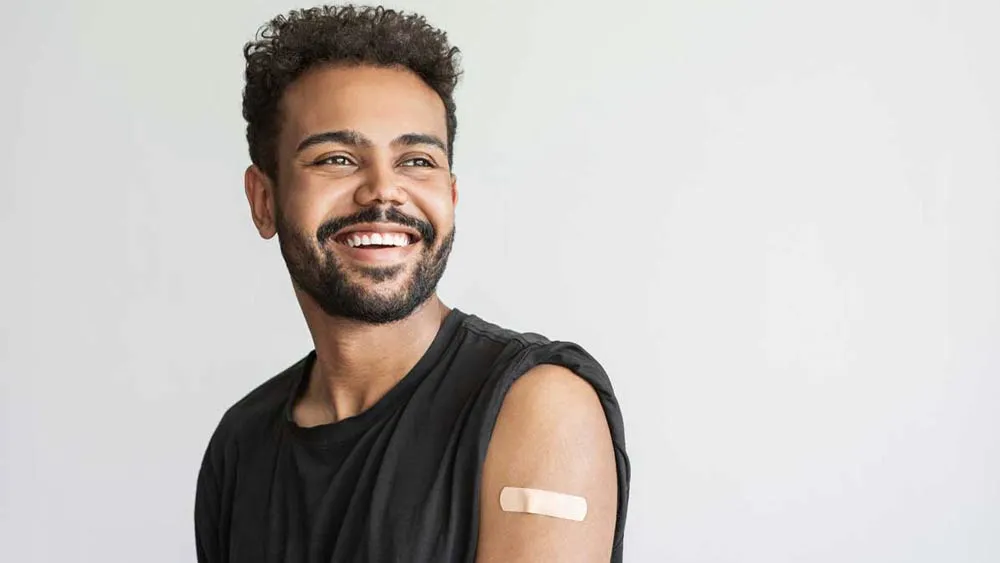May 20, 2013
Gay Adoption Bill to be Reintroduced with Bipartisan Sponsors
Megan Barnes READ TIME: 4 MIN.
A bill that would cut off federal funding to adoption and foster care agencies that discriminate against gay and lesbian couples seeking to parent is making its way to Congress again with bipartisan support.
The Every Child Deserves a Family Act is set to be reintroduced in both the House and Senate by the end of May, which happens to be National Foster Care Month.
This time, it's being sponsored by two democrats, Georgia Rep. John Lewis and New York Sen. Kirsten Gillibrand, and one republican, Florida Rep. Ileana Ros-Lehtinen.
"We're in a challenging political environment, so I think its chances in this Congress aren't great, but I do think we have an opportunity to build some real bipartisan leadership and collaboration," said Emily Hecht-McGowan, director of public policy at the Family Equality Council, a national LGBT family organization that's been pushing for the bill since it was first introduced in 2009.
Currently, only a handful of states ban gay couples from becoming foster parents or adopting, but in all, 39 states have barriers or restrictions that create hurdles for LGBT couples, according to the Family Equality Council. Of the more than 100,000 foster children eligible for adoption, 26,000 age out of the system each year.
"I think most people would be surprised to know that in the vast majority of states, there is some kind of barrier to LGBT people becoming foster parents or adopting," Hecht-McGowan said.
The bill would set a nationwide standard and ease the process that is often prolonged and inconsistent.
In states like Kansas that do not take a legal stance either way, whether or not a gay couple can adopt or foster usually comes down to local jurisdiction.
"If there's a larger or more progressive city in the state, you'll likely find agencies, judges or individual case workers that don't have an objection, but in more rural, conservative pockets, you'll most likely run into ones that do have some kind of issue or concern," Hecht-McGowan said.
Two and a half years ago, Florida's ban on gay adoption was overturned when Martin Gill, a foster parent who was barred from adopting two foster children he and his partner were raising, successfully challenged the law in a landmark case. Gill is now a staunch advocate for the Every Child Deserves a Family Act, and is largely responsible for Ros-Lehtinen's co-sponsorhip of the bill.
"A lot of people don't know about this issue. There's so much going on about marriage, which is great, but to me, the ability to establish a family and adopt is so much more essential than whether or not the government will recognize me and my partner as a married couple," he said.
The Right’s Changing Views
Gill and his children recently spoke at a press event in Washington, D.C., where lawmakers announced they'd be reintroducing the bill. He is now lobbying Republican Senator Marco Rubio of Florida.
"It takes more courage to approach a representative or senator who has not been an ally of the LGBT community, but that's what we have to do," he said. "We need to start those conversations."
And the tide could be turning. Just a few weeks ago, at a town hall event in his hometown, former vice presidential hopeful Wisconsin Rep. Paul Ryan, a Republican, said that he is no longer opposed to gay adoption.
"We have a number of members who have adopted, or are considering this as an issue that's important to them," said Gregory T. Angelo, executive director of the Log Cabin Republicans, the nation's original and largest organization of Republicans who support fairness, freedom, and equality for LGBT Americans. "It's encouraging to see this reintroduced with bipartisan support."
The bill is modeled after the Multiethnic Placement Act of 1994, which prohibits agencies from factoring race or ethnicity into placements. The measure also has support from dozens of LGBT and child welfare organizations, including the Child Welfare League of America.
"This is an issue that's getting a lot of attention and we're glad that it is, but really, for us, it's something that's been embedded in our practice guidelines for at least 13 years," said Linda Spears, vice president for policy and programs.
"We liken it to the single-parent adoption battle we fought 30 or 40 years ago when everyone thought you had to be a two-parent home with a white picket fence," she continued. "We believe good parents come in all shapes, sizes and forms."
Critics have questioned how the bill will impact religious adoption services, but proponents say those that will not arrange adoptions for gay couples can still operate privately without federal funding.
On May 30, the Family Equality Council and Parents Families and Friends of Lesbians and Gays (PFLAG) are putting on a national day of action where hundreds of constituents will meet with their elected representatives to lobby the bill.
"A super majority of Americans think LGBT people make good parents," Hecht-McGowan said. "The best interest of children should not be a partisan issue."
Megan Barnes is a freelance journalist in Los Angeles. She regularly contributes to EDGE, San Pedro Today and was a founding editor of alternative UCSB newspaper The Bottom Line. More of her work can be found at www.megbarnes.com



